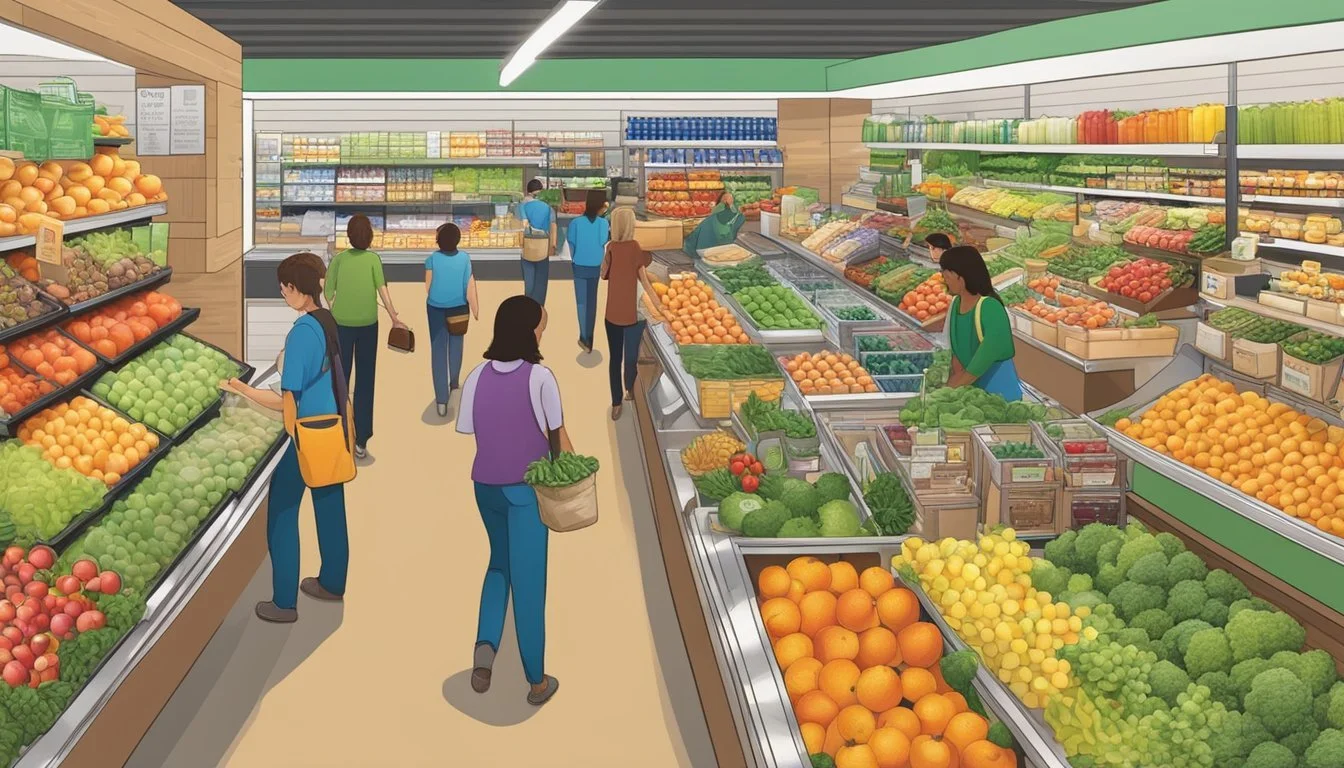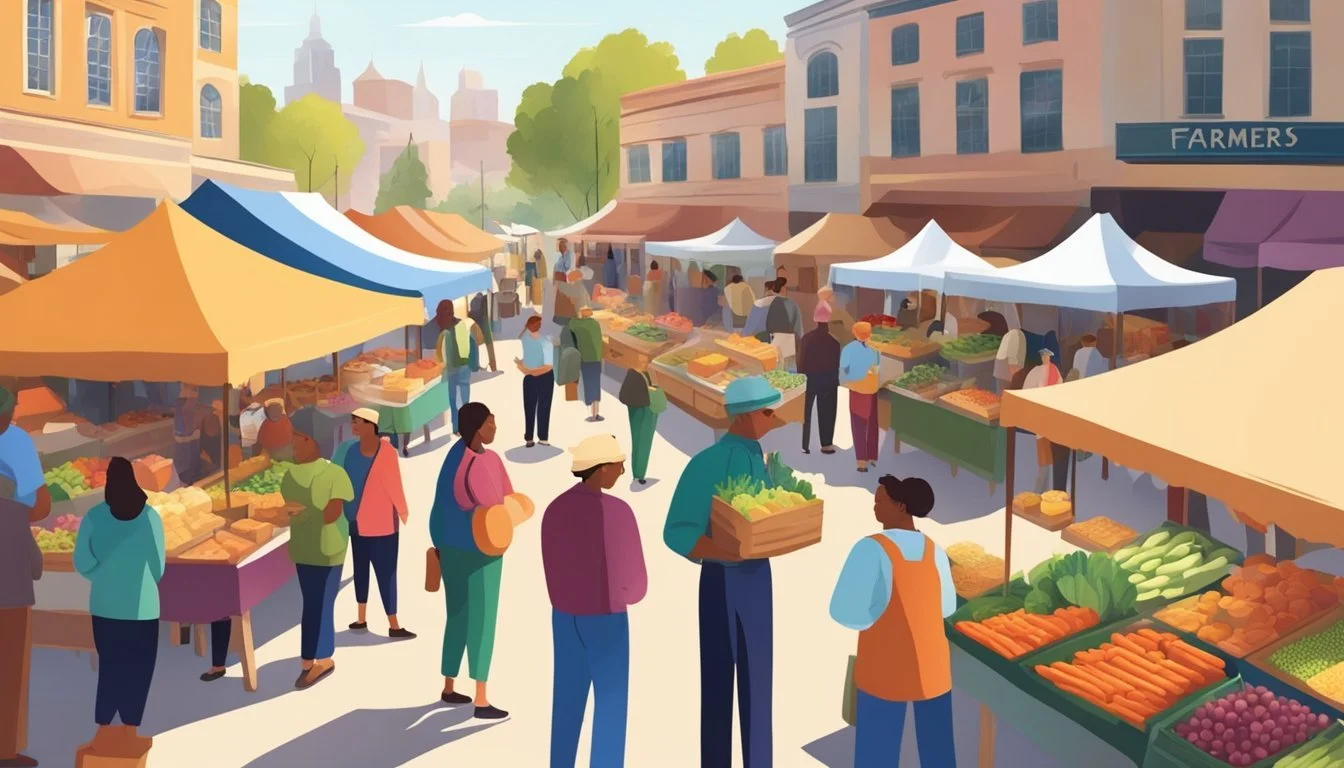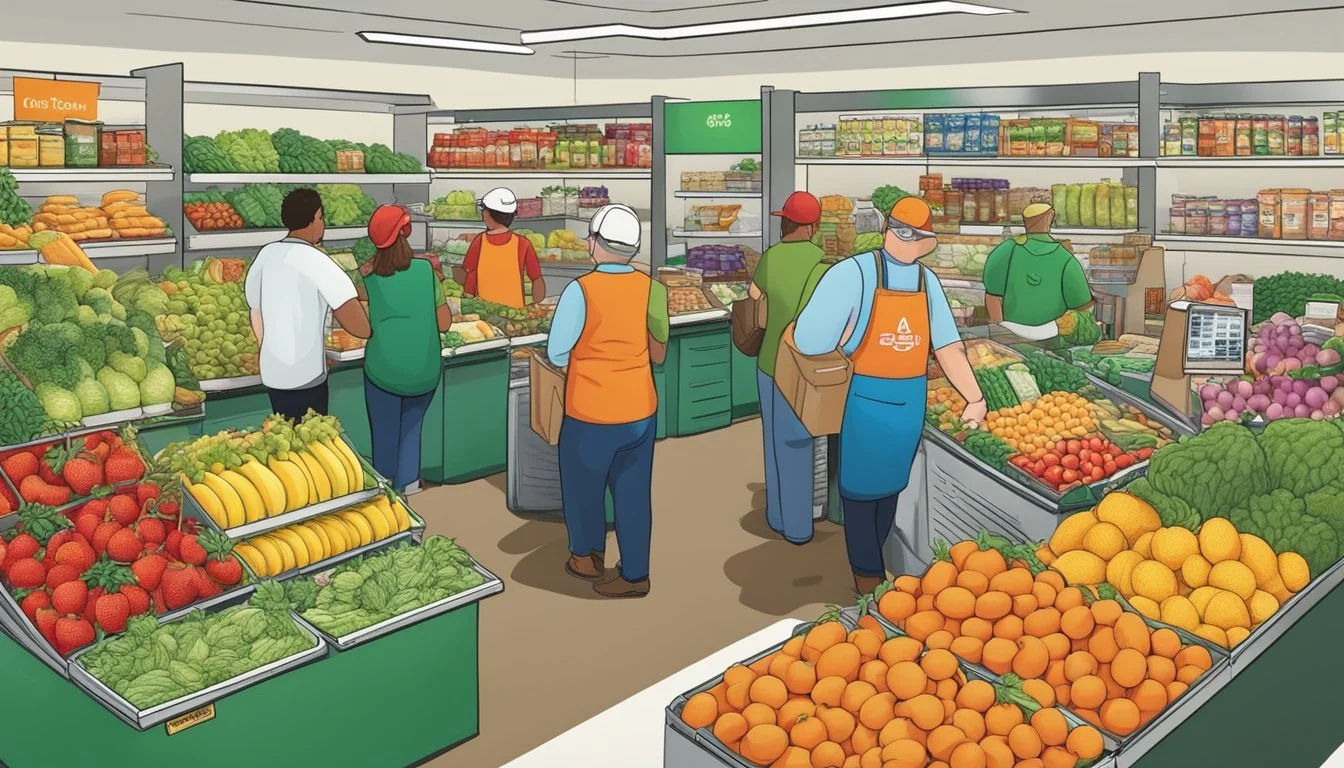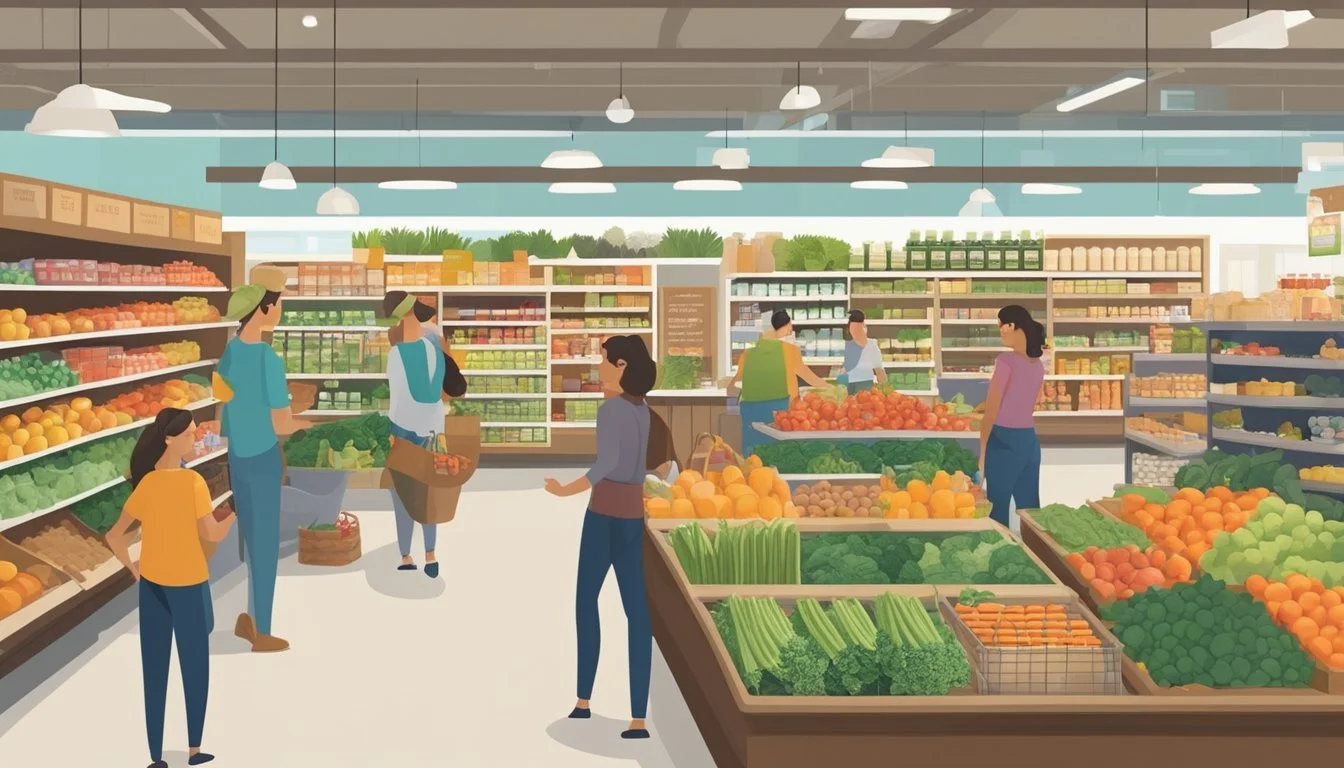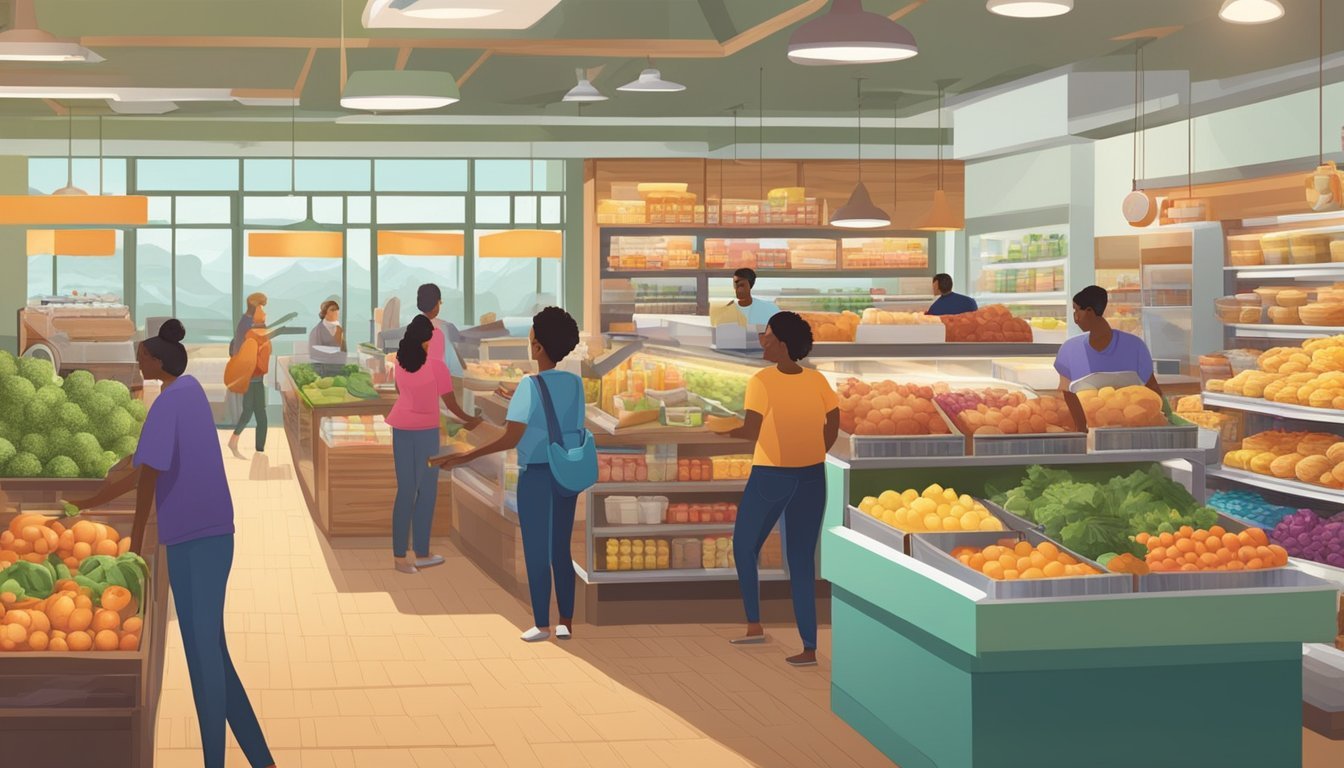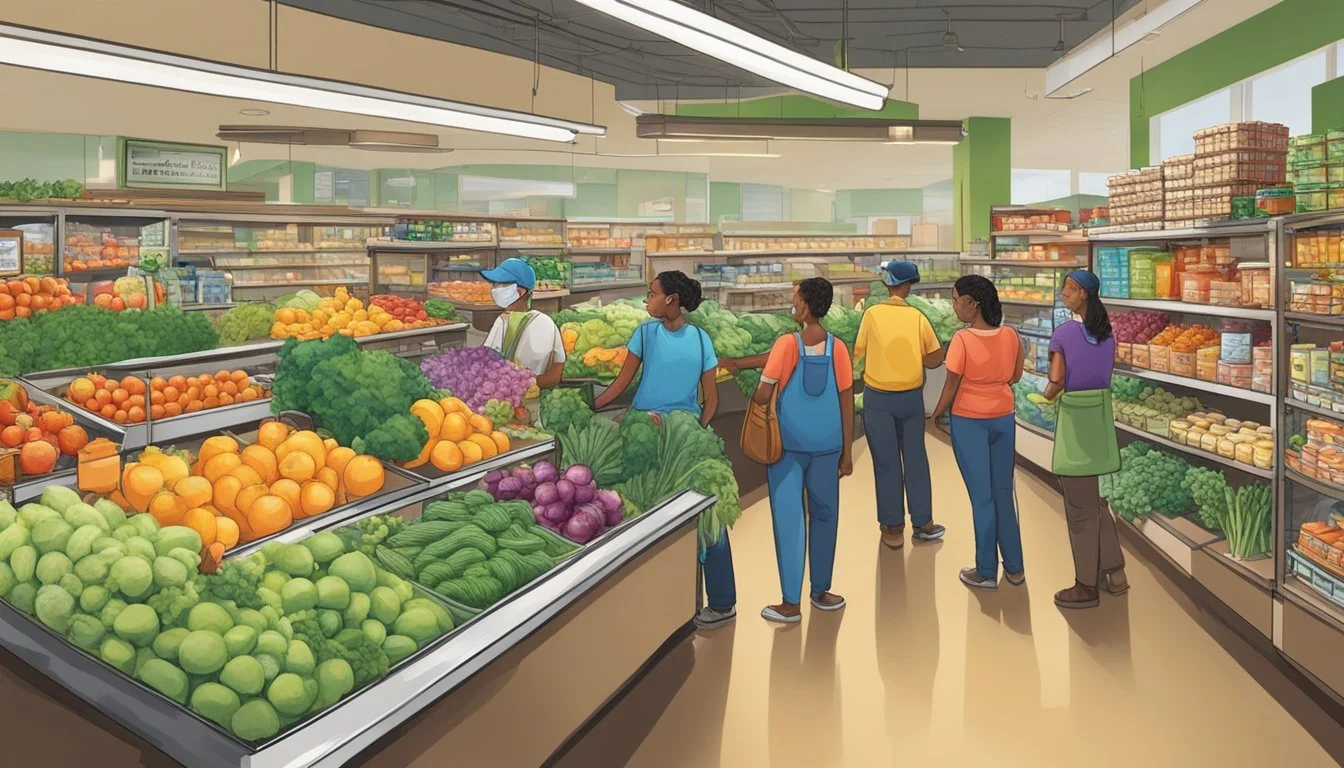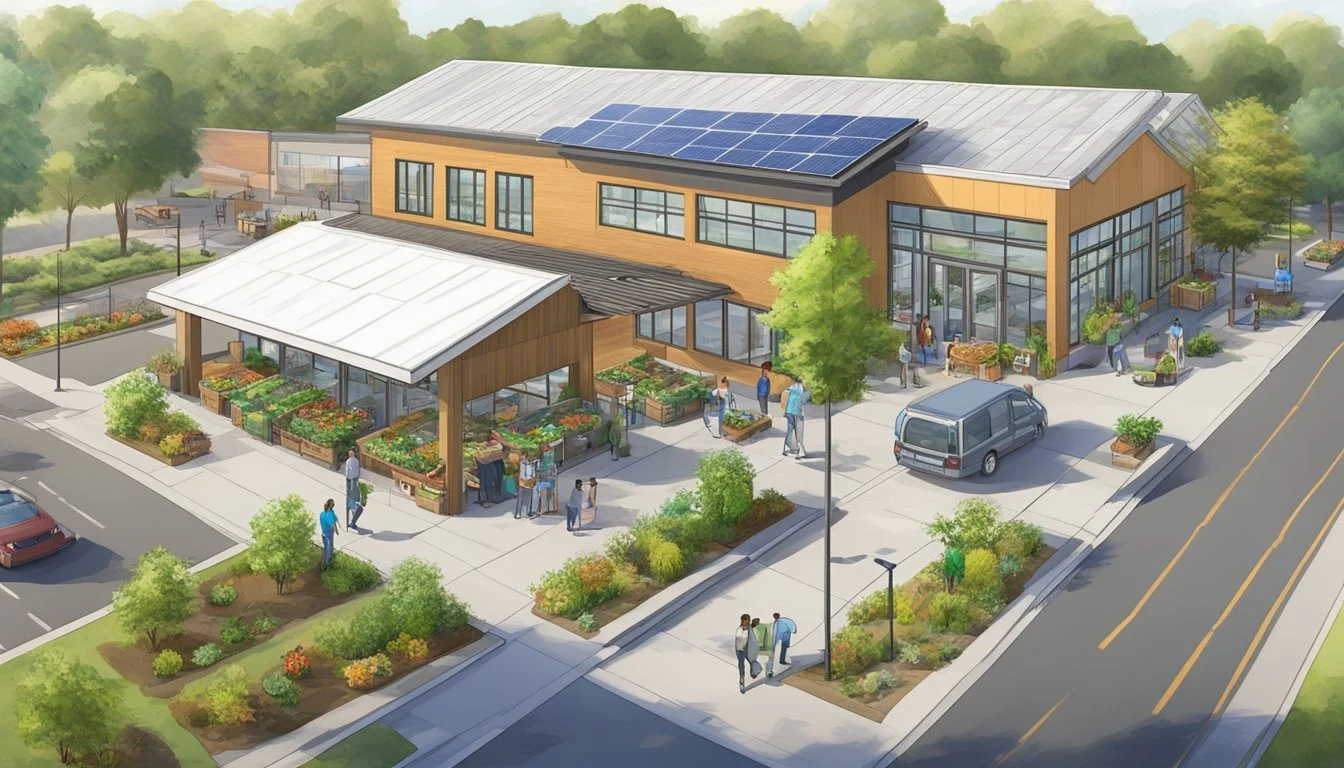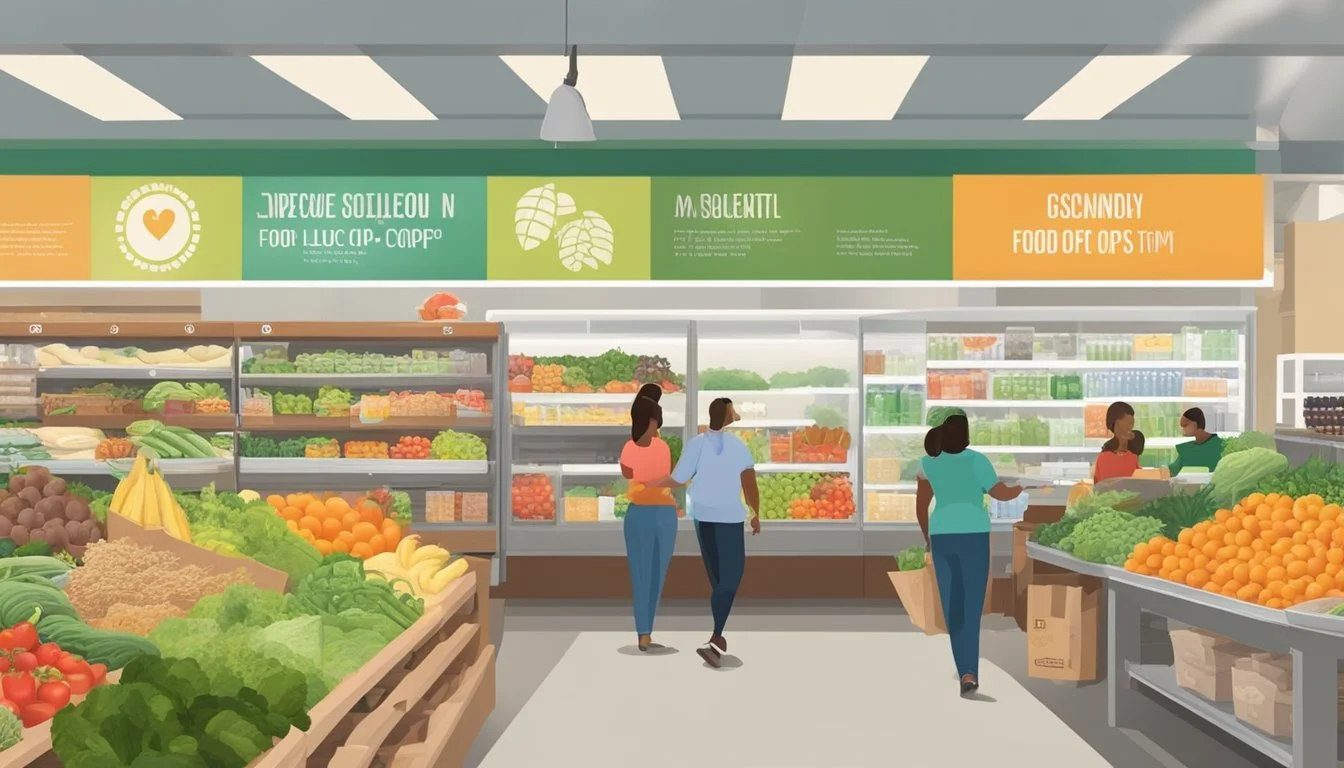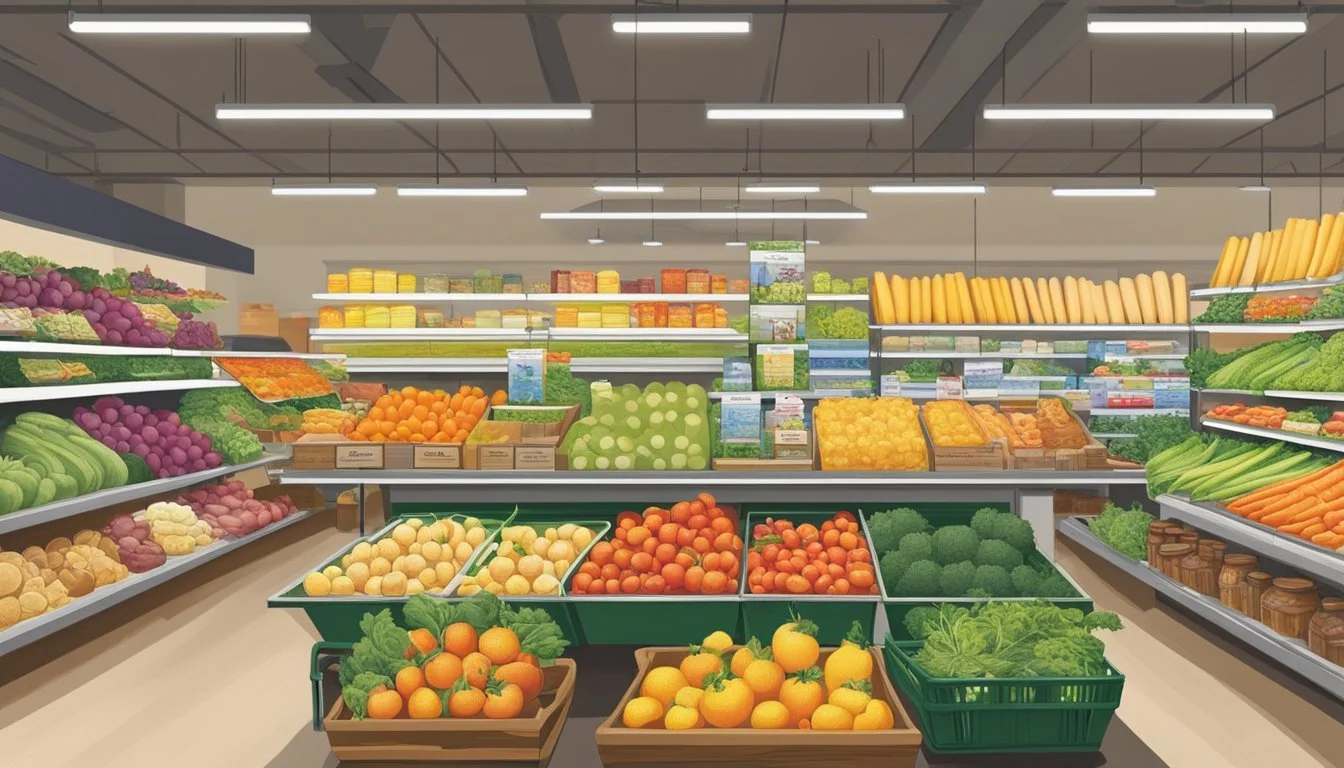Guide to Food Co-Ops in League City, TX
Your Essential Resource
League City, Texas, offers a variety of options for those interested in the cooperative food movement, which emphasizes community-oriented, locally-sourced, and often organic produce. As a growing suburban city in the Houston metropolitan area, League City is home to food co-ops that prioritize not only healthful eating but also sustainable practices and the strengthening of local food systems.
One notable establishment in the area is the Natural Living Food Co-op & Cafe, providing residents with access to organic produce shares, a variety of bulk herbs, and a vegan cafe that serves an assortment of organic coffees, teas, and culinary delights. Situated in the heart of League City, this co-op also boasts an impressive collection of organic herbs and spices, reportedly the largest in Texas, catering to the needs of health-conscious shoppers and culinary enthusiasts alike.
Residents of League City benefit from these co-ops, which offer fresh, seasonal vegetables harvested using organic methods free from chemical fertilizers, pesticides, or herbicides. By participating in food co-ops, individuals in League City can support local agriculture, enjoy high-quality food, and join a community that values nutritional well-being and environmental stewardship.
Understanding Food Co-Ops
Food co-ops in League City, TX, exemplify a sustainable model for accessing healthy, locally-sourced groceries. They operate on core principles that emphasize community and member-driven benefits.
Core Principles of Co-Ops
A co-op, or cooperative, is a member-owned enterprise that operates for the mutual benefit of its members. In League City, food co-ops adhere to several key principles:
Voluntary and Open Membership: Co-ops are open to all individuals willing to accept the responsibilities of membership.
Democratic Member Control: Co-ops are democratic organizations controlled by their members—each member has one vote.
Members' Economic Participation: Members contribute equitably to the capital of their co-op and manage it for mutual benefit.
Autonomy and Independence: Co-ops are self-help organizations controlled by their members.
Education, Training, and Information: Co-ops provide education and training to members to contribute effectively to the development of their co-ops.
Cooperation among Cooperatives: By working together, co-ops strengthen the cooperative movement.
Concern for Community: Co-ops work for the sustainable development of their communities.
Benefits of Joining a Food Co-Op
Members of League City food co-ops enjoy various benefits tied to membership:
Access to Local and Organic Products: They offer a range of organic, non-GMO produce, advocating for sustainable food systems.
Community Connection: Co-ops provide a hub for like-minded individuals to foster community connections.
Membership Advantages: Members may receive discounts, special orders, or other economic benefits.
Education on Healthy Living: Opportunities for educational programs on nutrition and healthy living are often available.
Supporting Local Economy: Members help sustain the local economy through their patronage and support of local growers and producers.
Getting Started with Food Co-Ops
Residents in League City looking to embrace a more community-oriented way to purchase groceries may consider joining a food co-op. Food co-ops often provide access to high-quality, organic produce and foster a sense of community among members.
Types of Food Co-Ops
In League City, individuals interested in food co-ops have a couple of models to consider. Worker or member-owned cooperatives are where individuals contribute labor for reduced prices on items. Community-owned co-ops focus on collective ownership by shoppers invested in the co-op. These models prioritize the availability of fresh, organic products and may offer produce shares, which are portions of seasonal produce distributed to members.
How to Join a Food Co-Op
To join a food co-op in League City, individuals will typically need to:
Locate a co-op nearby.
Understand the co-op's membership structure, which may include a membership fee or work requirement.
Apply for membership, which might entail filling out an application and agreeing to the co-op’s terms.
Prospective members should review the specific membership requirements to ensure they align with their expectations of contributing time or monetary investment into the co-op.
Member vs Non-Member Benefits
Members of food co-ops typically enjoy several benefits compared to non-members:
Discounts: Reduced prices on grocery items, including organic produce.
Voting Rights: Influence on co-op decisions and selection of market offerings.
Special Orders: Ability to request specific products.
Non-members may shop at some food co-ops but often at higher prices, with limited product access, and without the benefit of having a say in the cooperative's operations. However, they can still access high-quality and organic items that the market stocks.
Local Food Co-Op Directory
Food co-ops in the League City, TX area provide a hub for the community to access local, organic produce and products. These cooperatives are pivotal in maintaining sustainable food networks by connecting consumers directly to local organic farms.
League City Organic Co-Op
Location: League City, TX
Offerings:
A wide array of all organic, non-GMO produce.
Focuses on collaborating with local farmers, gardeners, chefs, and artisans.
Stocks fresh and seasonal vegetables.
Notable Features:
Ensures the absence of chemical fertilizers, pesticides, or herbicides in their produce.
Actively eliminates known GMO products from their shelves.
Houston Area Sustainable Markets
Location: Houston, TX vicinity
Services:
Platforms for local organic farms to sell their produce.
Organic grocery markets that feature sustainable and ethically-sourced goods.
Highlights:
Encourages community engagement with local food systems.
Contributes to the local economy and supports regional agricultural practices.
These co-ops and markets not only promote healthy living through organic foods but also foster a sense of community by bringing together consumers and local producers.
Products and Produce
Food co-ops in League City, TX offer a variety of fresh, local, and sustainable products. They emphasize organic and non-GMO foods, including a range of seasonal produce and specialty items.
Seasonal Produce Availability
Food co-ops in League City provide consumers with a selection of fruits and vegetables that change with the seasons. Customers can expect summer offerings including tomatoes and peppers, while winter may bring leafy greens and root vegetables. This ensures that produce is at its peak of freshness and flavor.
Organic and Non-GMO Selection
The commitment to organic and non-GMO products is a cornerstone of these co-ops. Local organic farms and gardens supply a bulk of items ensuring that shoppers have access to produce free from synthetic pesticides and fertilizers as well as genetically modified organisms. This selection extends beyond produce to include organic dairy, eggs, and honey.
Specialty Items
Co-ops in the area cater to diverse dietary needs and preferences with an array of specialty products. Alongside conventional staples, customers can find:
Gluten-Free or Vegan Bakery Goods: Options for those with dietary restrictions.
Grass-Fed Meat and Seafood: Sourced responsibly for quality and sustainability.
Bulk Herbs: For culinary or medicinal use, sold in quantities to suit any need.
Patrons have the advantage of not only finding quality grocery items but also unique products that support their health and the community's economy.
Sourcing and Suppliers
Food co-ops in League City, TX, prioritize local, sustainable agriculture, partnering with farmers and suppliers who adhere to organic standards. The focus is on fostering a direct-from-source supply chain to ensure quality and support the local economy.
Partnerships with Local Farms
Food cooperatives in League City engage in collaborations with local farms such as That Farm Stand on Highland Road to source a variety of fresh produce. These partnerships often involve mutual commitments, where co-ops support local organic farms and backyard organic gardeners by offering their products to a wider community, thereby ensuring a market for sustainably grown local farm foods.
Organic Certification Standards
Suppliers to these co-ops typically must meet organic certification standards, which ensure that the food is grown without synthetic fertilizers, pesticides, or herbicides. This certification is a testament to the organic methods applied, aligning with the values of consumers who seek out food co-ops for their grocery needs.
From Farm to Co-Op: Distribution
The distribution process from farm to co-op is designed to maintain the integrity of the produce while reducing carbon footprint. The shorter supply chains, inherent to local sourcing, allow for fresher delivery of goods and are part of the sustainable practices that these co-ops endorse. Local farms deliver their goods directly to co-ops, often within a day of harvest, ensuring that members get the freshest food possible.
Community Involvement
Food co-ops in League City, TX, play a crucial role in fostering community connection and education. They provide a platform for local residents to engage with the co-op movement, contribute to its volunteer-run ethos, and benefit from shared knowledge and resources.
Workshops and Education
Food co-ops offer workshops and educational programs that aim to enlighten the community about the benefits of local food systems, sustainable practices, and healthy eating habits. These workshops often feature experts from local food businesses and are geared towards both adults and children, emphasizing the importance of community learning and involvement.
Examples of workshop topics may include:
Home gardening
Healthy cooking techniques
Sustainable farming practices
Volunteering at the Co-Op
Volunteerism is at the heart of every volunteer-run co-op. Residents of League City have the opportunity to volunteer at their local co-op, learning about the operations of a grocery cooperative and contributing to its success. Volunteering roles can range from stocking shelves to assisting in the café.
Volunteer benefits include:
Gaining new skills
Meeting like-minded community members
Receiving discounts on purchases
Community Outreach Programs
Food co-ops in League City are dedicated to community outreach programs, including initiatives to tackle food insecurity and provide support to neighborhood projects. Co-ops collaborate with local food businesses and farms to maximize the positive impact on the community and work towards common goals of sustainability and well-being.
Outreach efforts can include:
Food donation drives
Participation in local events
Educational partnerships with schools and non-profits
Community involvement is central to the ethos of food co-ops, enriching not just members but also the broader neighborhood in League City through education, volunteer opportunities, and outreach programs.
Financial Aspects
When exploring food co-ops in League City, TX, understanding the financial implications is crucial. The financial health of these cooperatives and their effects on the economy involve membership costs, potential savings, and tangible economic benefits.
Membership Costs and Savings
Members of food co-ops in League City typically pay a fee to gain access to the cooperative's offerings. This fee might be a one-time payment or an annual contribution. In return, members often enjoy discounted prices on organic, non-GMO produce and other grocery items as compared to standard retail pricing. For instance, members might benefit from a 5-10% discount on purchases. Payment methods are usually varied and member-friendly, with options like Venmo, PayPal, and traditional methods being commonplace.
Furthermore, some co-ops operate on an honor system, which can lead to even more affordable shopping experiences and foster a sense of trust and community. The economic advantage for members is clear: they save money on high-quality, healthy groceries over time, offsetting the initial cost of membership.
Economic Impact on Local Economy
Food co-ops in League City have a notable impact on the local economy. By supporting local businesses and farmers, these co-ops keep money circulating within the community. Purchases made at co-ops can directly benefit local growers and producers, ensuring that a significant portion of consumer spending contributes to the local economy.
Additionally, food co-ops often employ residents, providing jobs and contributing to local economic stability. By patronizing these co-ops, members and non-members alike participate in a cycle that sustains and enriches the economic landscape of League City.
Environmental Sustainability
Food co-ops in League City, TX, are actively engaged in enhancing environmental sustainability through various initiatives, focusing on eco-friendly practices and robust methods to reduce food waste.
Eco-Friendly Practices
The co-operative Natural Living Food Co-op & Cafe exemplifies sustainable efforts by prioritizing organic produce from local organic farms. They favor non-GMO options, thereby supporting farming without the reliance on synthetic pesticides, herbicides, fungicides, and chemical fertilizers. This not only ensures the health of the soil and water but also promotes biodiversity. Additionally, to mitigate plastic pollution, this co-op deploys reusable materials, opting for glass and metal containers in both store shelving and kitchen usage.
Reducing Food Waste
Food co-ops in League City, Texas, are making strides in combating food waste through various means:
Bulk Herbs: Selling herbs in bulk allows consumers to purchase only what they need, lowering the chance of surplus and waste.
Produce Shares: Weekly produce shares encourage community members to consume fresh produce and reduce the instances of over-purchasing.
Education: By educating members on food preservation and proper storage techniques, they can extend the lifespan of their groceries and minimize waste.
In summary, the food co-ops' environmentally sustainable practices are multifaceted, addressing packaging, sourcing, and consumer behavior to generate a positive ecological impact.
Health and Wellness
Health and wellness thrive on the quality and sources of food consumed. In League City, TX, food co-ops such as the Natural Living Food Co-op & Cafe emphasize organic, non-GMO offerings that cater to various dietary needs, helping individuals maintain a healthier lifestyle through nutrient-rich and allergen-conscious food choices.
Nutritional Benefits of Locally Sourced Food
Locally sourced food often arrives fresher on the consumer's plate, translating into higher nutritional content. For instance, organic produce from local sources minimizes the time between harvest and consumption, ensuring that vitamins and minerals are at their peak. Natural Living Food Co-op & Cafe, located in League City, focuses on providing these organic produce shares to the community, aligning with the understanding that organic foods are typically grown without synthetic pesticides and fertilizers, which many believe to be better for one's health and the environment.
Key points about locally sourced organic food:
Fresher: Shorter farm-to-table time.
More Nutrients: Higher levels of vitamins and minerals.
Non-GMO: Genetically unmodified and naturally propagated.
Environment Friendly: Sustainable farming practices.
Additionally, consuming local honey can benefit residents by aligning with local allergens, potentially lessening seasonal allergy symptoms.
Supporting Dietary Restrictions
Food co-ops like the Natural Living Food Co-op & Cafe in League City are well-equipped to support dietary restrictions by offering an array of products catering to gluten intolerance, allergies, and other dietary needs. Their shelves are lined with:
Gluten-Free Options: Bread, pastas, and baked goods without gluten for those with celiac disease or gluten sensitivity.
Allergy-Conscious Choices: Labels clearly indicating the presence of common allergens like nuts, dairy, or soy.
Vegan Alternatives: A variety of dairy-free and animal-free choices to support a vegan diet.
Moreover, these co-ops often provide an assortment of organic coffees and teas, which can be beneficial for those looking for healthful beverage options free from artificial additives. The availability of diverse food choices that promote a healthy diet establishes food co-ops as essential pillars in the health and wellness landscape of League City, TX.
Tips and Best Practices
When joining a food co-op in League City, TX, members gain access to fresh, organic produce and bulk items. Implementing key strategies can maximize the benefits of their memberships.
Making the Most of Your Co-Op Membership
To optimize their co-op experience, members should familiarize themselves with the co-op's schedule and offerings. They should stay informed about pick-up times for produce shares and take note of any special ordering deadlines. Additionally, members can benefit by participating in work shifts or attending events, which can often lead to discounts or perks.
Pick-Up: Understand the co-op's pick-up schedule to ensure fresh produce.
Orders: Place orders by the deadline to avoid missing out on preferred items.
Storage and Preparation of Bulk Items
Buying in bulk can be economical, but proper storage and preparation are vital to prevent waste. Members should invest in airtight containers to keep bulk items fresh. They should also educate themselves on the best practices for preparing and storing these foods to retain nutritional value and flavor.
Storage
Grains and Legumes: Store in cool, dry places in tight-sealing containers.
Spices and Herbs: Keep in dark, airtight containers to maintain potency.
Preparation
Soaking: Some bulk items like beans benefit from soaking to reduce cooking time.
Rotation: Rotate stock and use older items first to maintain freshness.
Community Engagement
Being part of a co-op is more than just shopping; it's about building a community. Members should engage with the co-op by attending meetings and participating in volunteer opportunities. By doing so, they contribute to the co-op's success and can influence how it serves the neighborhood.
Meetings: Attend and voice opinions on matters important to the community.
Volunteer: Help with events or day-to-day operations to support the co-op.
Engaging with the co-op community can enhance the overall experience and ensure the co-op aligns with the neighborhood's needs.
Spotlight on Local Suppliers
Food co-ops in League City, TX, give prominence to local suppliers that focus on high-quality, responsibly sourced products. This section delves into the offerings from Bullard Cattle Co., Hibiscus Hill Grassfed, and Fran's Fryers Chicken, shedding light on their contributions to local food co-ops and the community's dining tables.
Bullard Cattle Co.
Bullard Cattle Co. prides itself as a Texas ranch known for supplying grass-fed beef to the community. Their commitment to raising cattle on open pastures results in natural meat noted for its flavor and nutritional value. Patrons of local food co-ops appreciate Bullard Cattle Co. for their sustainable practices and contribution to preserving the local farm industry.
Hibiscus Hill Grassfed
Hibiscus Hill Grassfed stands out for their dedication to offering grass-fed beef and wild caught fish. This local farm is applauded for its high-quality produce and meats, which are made available through various food co-ops in the League City area. Their approach ensures that consumers benefit from the freshness of produce and the rich taste of naturally reared meats.
Fran's Fryers Chicken
Located within the heart of Texas, Fran's Fryers Chicken is a testament to the benefits of local, natural meat co-op models. They supply fresh, high-quality poultry to the local co-ops, ensuring the natural meat offerings are a staple for consumers looking for homegrown options. Fran's Fryers Chicken accentuates the importance of short supply chains and the deep-rooted connection between local farms and community health.
Online Resources and Further Reading
This section curates essential online resources and reading materials for individuals seeking comprehensive information on food co-ops and sustainable living practices in League City, TX. It ensures that readers can directly access learning tools and community discussions.
Co-Op Blogs and Forums
LocalHarvest stands as a pivotal online platform where individuals can learn about local food co-ops, including those in League City. The website hosts a variety of blogs that provide insights into the operations and benefits of joining a food co-op. It also facilitates a platform for community forums, where members can discuss challenges, successes, and strategies related to food cooperatives.
LocalHarvest Blog:
Articles: Offers detailed narratives on the food co-op experience.
Discussions: Encourages dialogue among co-op members and enthusiasts.
Educational Material on Sustainable Living
Educational resources that focus on sustainable living can help individuals understand the impact of their food choices. They can find a wealth of educational material via the Food Co-op Initiative website, a resource devoted to helping start and operate food co-ops. Online visitors can access guides, case studies, and detailed reports on sustainable practices.
Food Co-op Initiative:
Guides: Provides comprehensive manuals for starting and managing food co-ops.
Case Studies: Shares experiences from established food co-ops to foster learning.

